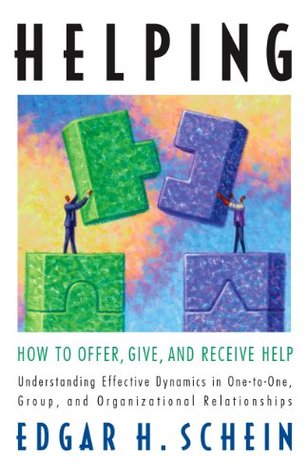More on this book
Community
Kindle Notes & Highlights
Read between
October 11, 2016 - January 1, 2022
The implication for would-be helpers is to become conscious of social economics and the social theater that we all live in, to think clearly about the helper role in the various situations in which they may find themselves, and to assess what sort of currency and what kinds of values must be managed to make the relationship fair and equitable.
Emotionally and socially, when you ask for help you are putting yourself “one down.” It is a temporary loss of status and self-esteem not to know what to do next or to be unable to do it.
Not everyone who asks for help is actually seeking it, but “help” may be a convenient word for whatever is being sought. Since it is not socially appropriate to say, “Pay attention to me,” we can force someone to give us attention by asking for help because that request imposes an obligation to respond. Sometimes the potential client has already defined the problem and worked out a solution, but wants confirmation, positive evaluation, maybe even praise. This often happens in organizations where the consultant is hired to develop a program only to discover that the client already has one and
...more


